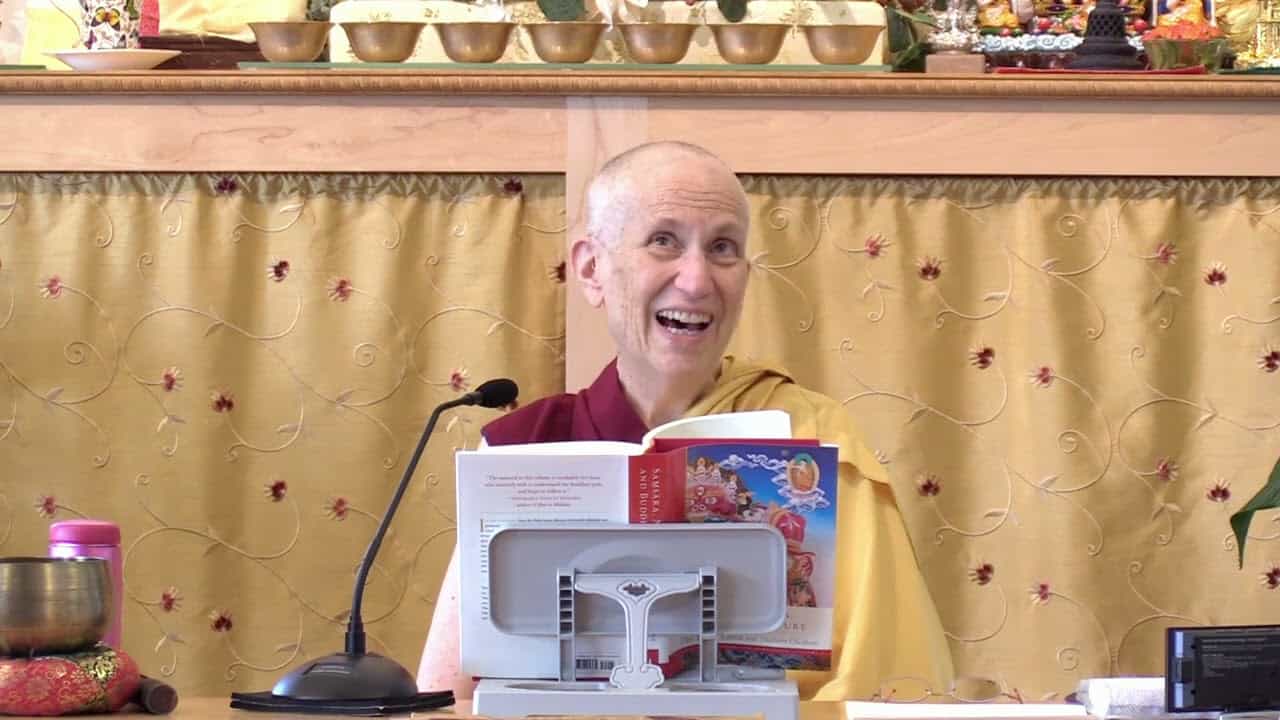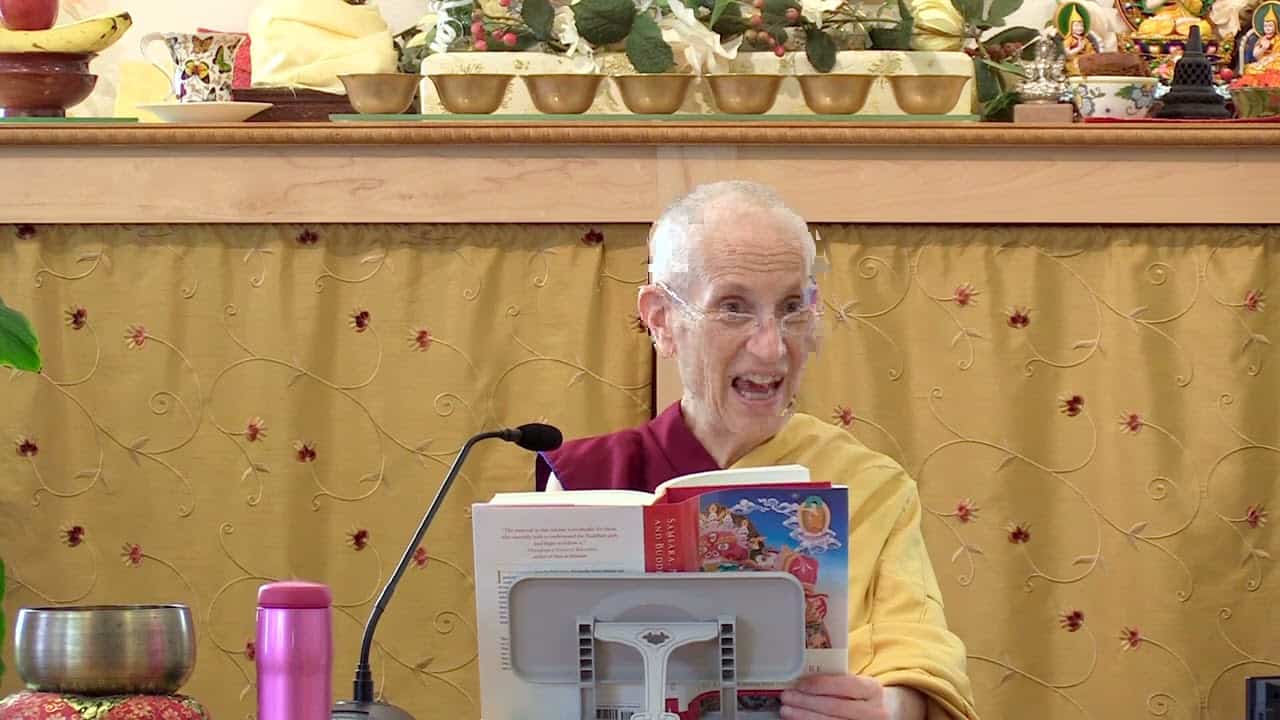Four attributes of true duhkha
08 Samsara, Nirvana, and Buddha Nature
Part of an ongoing series of teachings (retreat and Friday) based on the book Samsara, Nirvana, and Buddha Nature, the third volume in The Library of Wisdom and Compassion series by His Holiness the Dalai Lama and Venerable Thubten Chodron.
- Recognizing the kindness of all sentient beings
- Transforming the mind to let go of grudges
- Relating to others as human beings rather than stereotypes
- The four attributes of true duhkha counteract the four distortions
- First attribute: The physical and mental aggregates are impermanent
- Coarse and subtle impermanence
- Second attribute: The aggregates are unsatisfactory by nature
Samsara, Nirvana, and Buddha Nature 08: Four attributes of true duhkha (download)
Contemplation points
- Consider the kindness of others in your life. Really take some time with this. Next, consider are there ways in which others have been kind, but you have not been in a place to recognize or receive it? How does thinking in this way expand your feeling of openness and connection for others?
- Venerable said that someone who really lives these truths on a heart level, they tend to be very “alive” and “present.” They don’t waste their time. They know what is important and not important. Spend some time really thinking of this and how it would be to live in this way. Determine to continue your study of these topics to deepen your understanding and attain this kind of mental state.
- Impermanence is one attribute of the first truth of the Aryas to counteract our belief in permanence. How often are you aware of the impermanent nature of your aggregates such as your feelings and in which ways? Give one or two examples. If you are not aware of impermanence – why not?
- Do you see any benefits to recognizing impermanence in your life? What are they?
- When you imagine yourself at the end of your life, what would you like to look back on? What can you do to accomplish this?
Venerable Thubten Chodron
Venerable Chodron emphasizes the practical application of Buddha’s teachings in our daily lives and is especially skilled at explaining them in ways easily understood and practiced by Westerners. She is well known for her warm, humorous, and lucid teachings. She was ordained as a Buddhist nun in 1977 by Kyabje Ling Rinpoche in Dharamsala, India, and in 1986 she received bhikshuni (full) ordination in Taiwan. Read her full bio.


